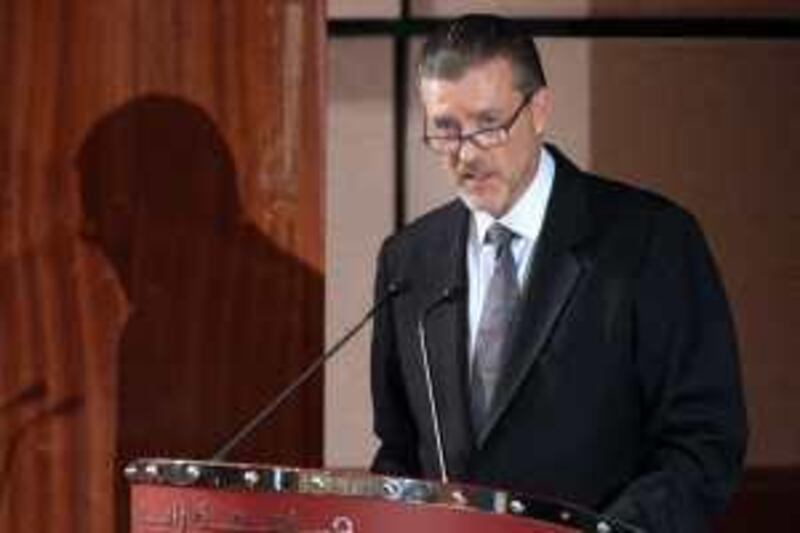ABU DHABI // Richard Olsen, the US ambassador to the UAE, acknowledged yesterday the countries do not see eye-to-eye on some issues. But the hurdles are far from unsurmountable, he said. "The UAE comes from a different perspective on certain issues. There are some differences of approach, but not in our fundamental objectives," Mr Olsen said in address to students at Zayed University.
Calling the UAE "a regional leader in finance, media, construction [and] diplomacy", he said the country had surpassed others in the region. He noted that trade and business relations between the countries had increased six-fold in the past decade. The UAE is now among America's top-20 export destinations, he said, adding that he expected the level to grow. He cited renewable energy and climate change as areas where the countries could co-operate more.
Mr Olsen, who has spent significant time in Arabic-speaking countries since he began his diplomatic career in 1982, also spoke of the need to eradicate stereotypes. "We need to be doing more to understand each other," he said. Although more Americans were coming to the UAE for business, Mr Olsen said there were few tourists, which he attributed to a "factor of geography". "There are now a number of direct flights to North America, which means that the numbers of tourists can only increase," he said. "It's a little bit hard, but the more contact we can build between Emiratis and Americans can only be a good thing."
He acknowledged that a lack of Arabic speakers in the US did little to break down barriers between the cultures. Mr Olsen said the increase in American universities offering Arabic studies "reflects new trends and the interest in the Middle East". He did not see a future in which Arabic was widely spoken in the US, though. Mr Olsen was asked by one student when the US would withdraw its US troops from Afghanistan.
He said the US president Barack Obama was committed to a withdrawal. "Potentially it could be as soon as next summer [2011]," following another round of troops entering Afghanistan later this year. "It's important to build up the capacity of the Afghan forces," he said. "Ultimately, this war can only be won by the Afghan people, the Afghan forces." A woman asked about the US dismissal of the recent Goldstone Report, which accused Israel of war crimes during the 2008-2009 Gaza offensive.
"The report was flawed in its methodology and one-sided," said Mr Olsen. "The issue of the allegations of war crimes has been dealt with by [Israel's] own judicial policies." mswan@thenational.ae






